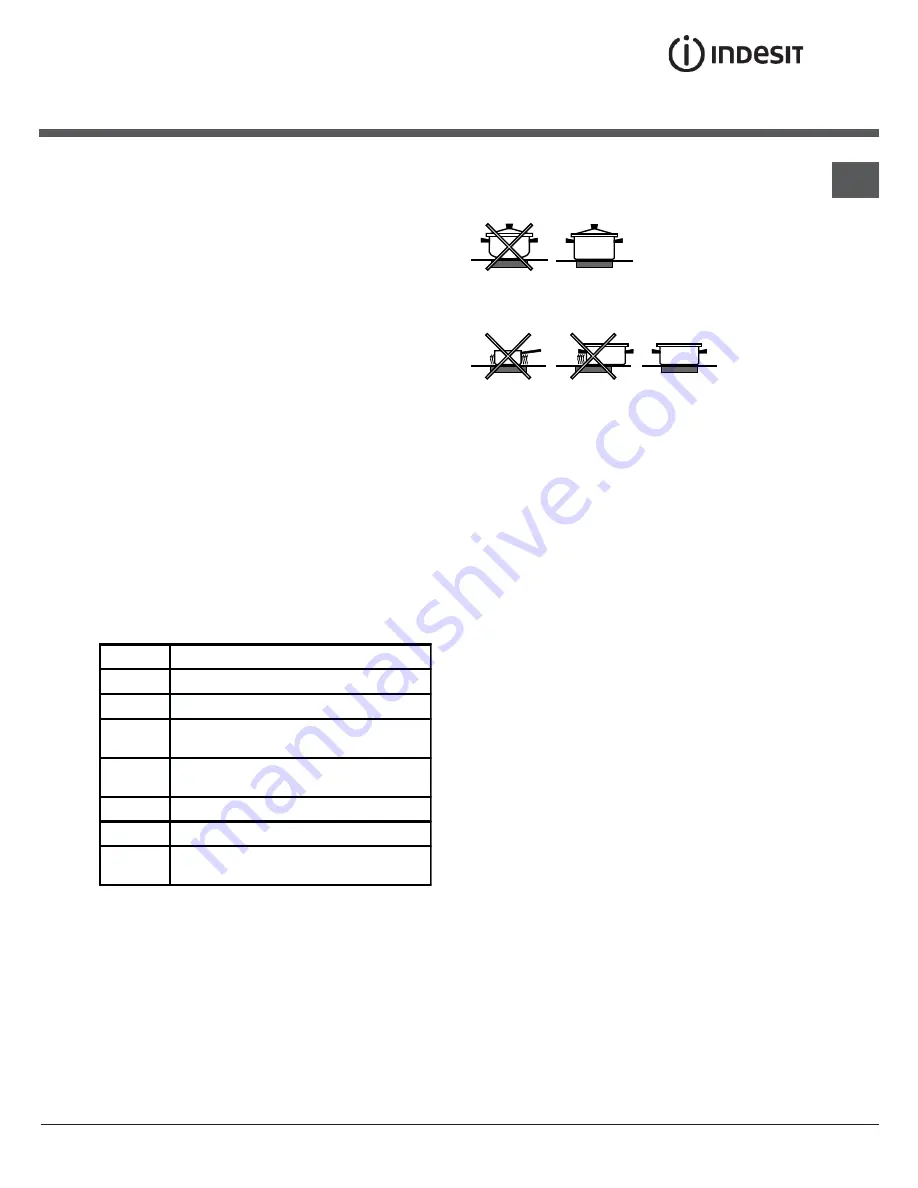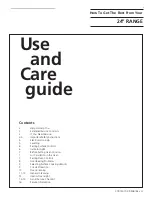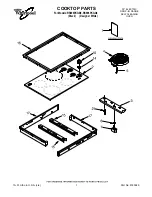
GB
23
Using the electric hob
Practical advice on using the hob
• Use pans with a thick, flat base to ensure that they
adhere perfectly to the cooking zone.
• Always use pans with a diameter that is large
enough to cover the hotplate fully, in order to use all
the heat produced.
• Always make sure that the base of the pan is
completely clean and dry: this ensures that the pans
adhere perfectly to the cooking zones and that both
the pans and the hob remain effective for a longer
period of time.
• Avoid using the same cookware that is used on gas
burners: the heat concentration on gas burners may
have warped the base of the pan, causing it not to
adhere to the surface correctly.
• Never leave a cooking zone switched on without a
pan on top of it, as doing so may cause the zone to
become damaged.
Switching the cooking zones on and off
The control knobs for the hob electric hotplates
The cookers can be fitted with normal and rapid
electric hotplates in a variety of combinations (the
rapid hotplates can be distinguished from the rest by
the red boss in the centre of the same). To avoid any
heat loss and damage to the hotplates, we advise you
to use pans with a flat bottom, with a diameter which
matches that of the hotplate itself. The table contains
the different settings indicated on the knobs and the
use for which the hotplates are recommended.
Before using the hotplates for the first time, you should
heat them at maximum temperature for approximately
4 minutes, without any pans. During this initial stage,
their protective coating hardens and reaches its
maximum resistance.
Electric hotplate indicator light
This light comes on when any of the electrical hotplates
on a hob which features electric hotplates have been
turned on.
Setting
Normal or Fast Plate
0
Off
1
Cooking vegetables, fish
2
Cooking potatoes (using steam) soups,
chickpeas, beans.
3
Continuing the cooking of large quantities of
food, minestrone
4
For roasting (average)
5
For roasting (above average)
6
For browning and reaching a boil in a short
time.
















































